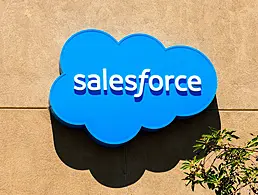Read up on some of the most popular predictions for office design, from smart technology to spaces built for privacy.
Many ideas about the future of work revolve around flexibility, so it makes sense that office spaces to come will reflect that – and experts on the matter seem to agree.
If you’re curious about how your workspace could transform to fit the design and job trends of the future, you’ve come to the right place. Check out some of the most popular predictions for office design and décor, taken from a few companies with an eye on the latest developments.
Sustainability
Sustainable materials and clothing are concepts that are gaining traction around the world, but what about eco-friendly fashion for the office?
According to commercial space developer Ambius: “At its roots, sustainable design is the integration of recycled, sustainably sourced and ‘green’ building materials into a space.
“It puts an emphasis on technology-driven energy efficiency, environmental conservation and ecological compliance in order to establish a more harmonious relationship between nature and our buildings. When you take this concept indoors you get something entirely new called ‘environmental wellness’.”
Ambius explains that sustainable office materials can include those that are minimally processed, as well as natural wood and stone features, and natural lighting.
Inclusion
Diversity and inclusion are buzzwords on the lips of many employers today, and according to office design company Penketh Group, it’s time to go the extra mile on making all members of staff feel welcome at work through the design of your space.
Including all employees can be made easier through office design. With greater accessibility for differently abled people in place, as well as measures for those living with mental health issues, companies can put authenticity and real action behind their diversity and inclusion promises.
Work-life balance
One of the most sought-after aspects of modern working life is striking the perfect balance between life outside the office and time spent within it.
Companies are already introducing various policies to help make that a reality for their staff, carving out space for wellness benefits and extracurricular activities.
But the physical build of the office environment can also be pivotal here, says Penketh Group. “Workspace design is reacting to this ongoing shift in culture by introducing things like social spaces, ‘workcafés’, games rooms, rejuvenation zones and even meditation areas.
“We’re expecting to see more of this – think yoga rooms, domestic living areas, ‘resimercial’ design, gym facilities, homely kitchens – as workspaces become more like a home from home.”
Privacy
Whether it’s protecting confidential company data or maintaining one’s own boundaries in the workplace, privacy is becoming even more pivotal in the working world.
Writing for PlaceTech, Proxy’s vice-president, Brandon Cook, says: “We are now hearing stirrings about employee data privacy – what employers can and cannot collect in the workplace. We think this conversation will become much louder in 2020.”
A practical part of the office that can impact privacy is its acoustics, according to Penketh Group. When done right, a workspace’s acoustic solutions can help staff find quiet places to work and speak in private.
But with the increasingly open and collaborative nature of offices, mapping out such spaces can be challenging.
Penketh continues: “We’re expecting to see more shielded, single-person facilities such as pods, booths and high-back acoustic furniture emerging as employees chase personal space, low noise levels, individual focus and confidentiality.”
Flexibility
It may be due to a necessity to work with teams in different time zones or to accommodate personal schedules outside of the job, but flexible working is certainly on the rise.
As Penketh puts it: “Employees are becoming more mobile – they’re nomadic, they’re agile and they’re anywhere they need to be. For this reason, workspaces need to be more adaptable and reactive than ever before.”
From remote working or hot desking to taking on unusual hours, businesses should pay attention to how their floor plans and furnishings facilitate the diverse working needs of their staff throughout the day.
Technology
Cook also discusses how new technology will revolutionise offices of the future: “Conference room environments will finally begin to be automatically responsive to users.”
He explains that his clients often express a desire for “smartphone-based access” that can personalise their interactions with different parts of the office, for example, including being automatically logged on to a Zoom call after entering the conference room they booked, or auto-enabling access to a local printer.
According to him, this trend will need to be embraced to “save employees (and IT teams) a lot of time”.
Food
Finally, it could be the case that canteens and cafeterias won’t be crucial to the workings of future companies.
Cook says the “exploding popularity of food delivery services”, in his opinion, means that “companies will provide visitor credentials to delivery people electronically and in advance so that they can deliver past the lobby without having to check in”.
He’s confident that such updated policies will eliminate the “dozens of delivery people queued at lobby security” in modern offices – and maybe even replace the ham and cheese sandwiches sitting in the office fridge.




